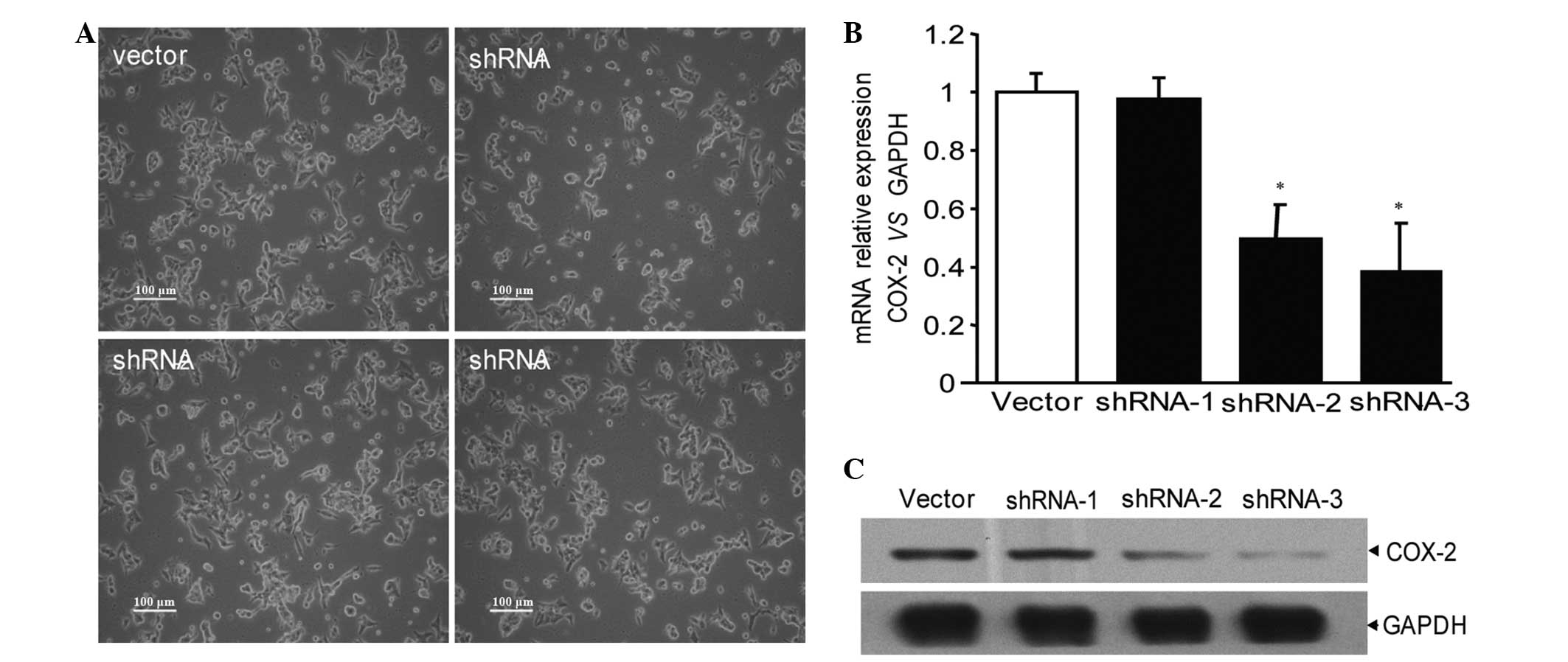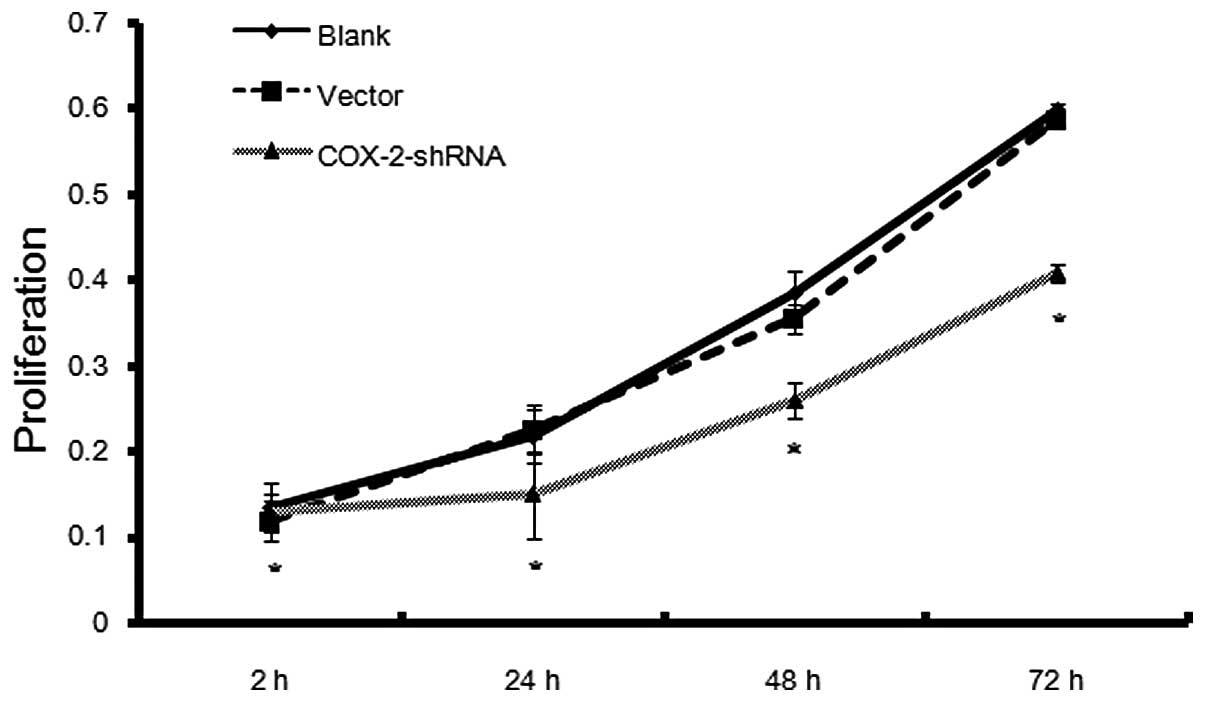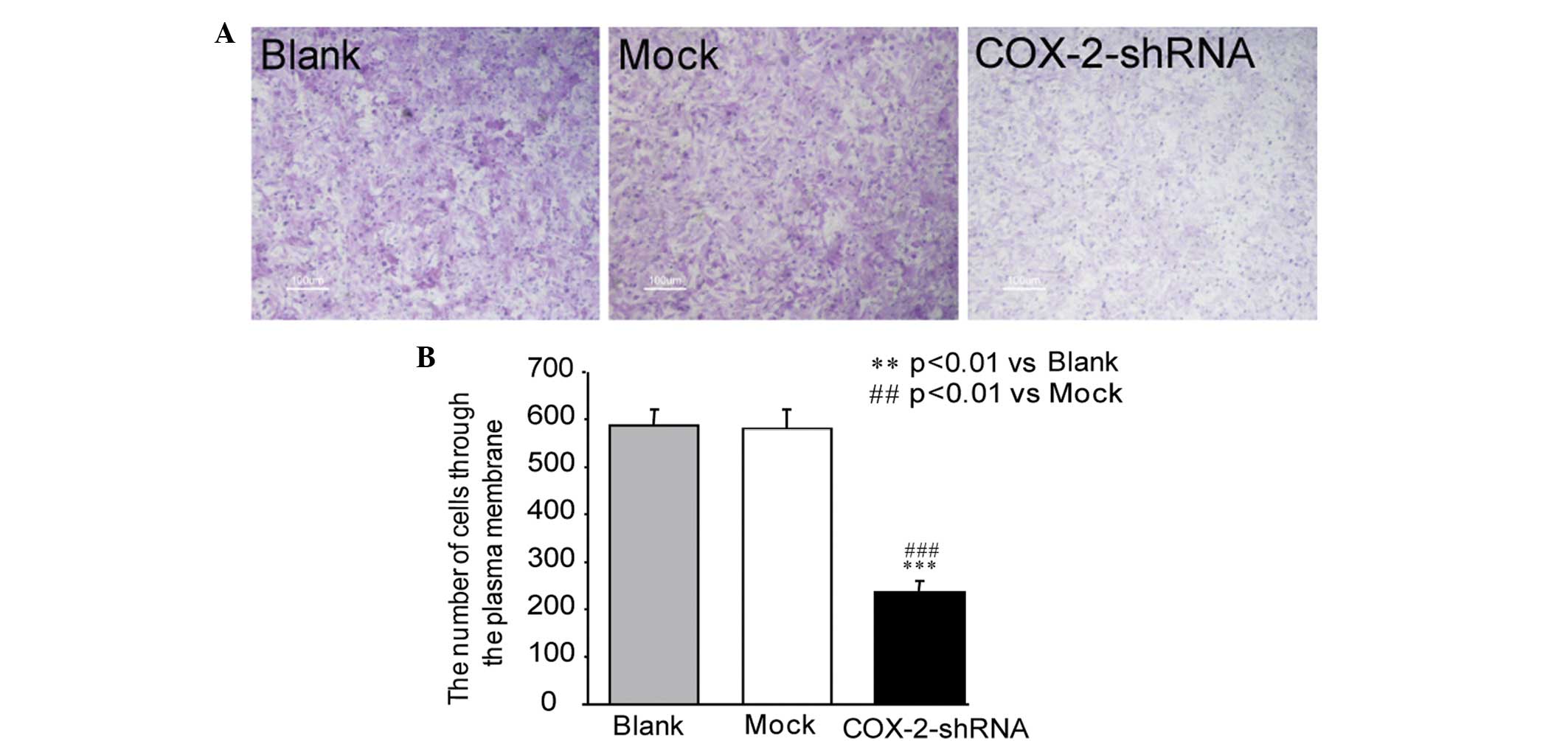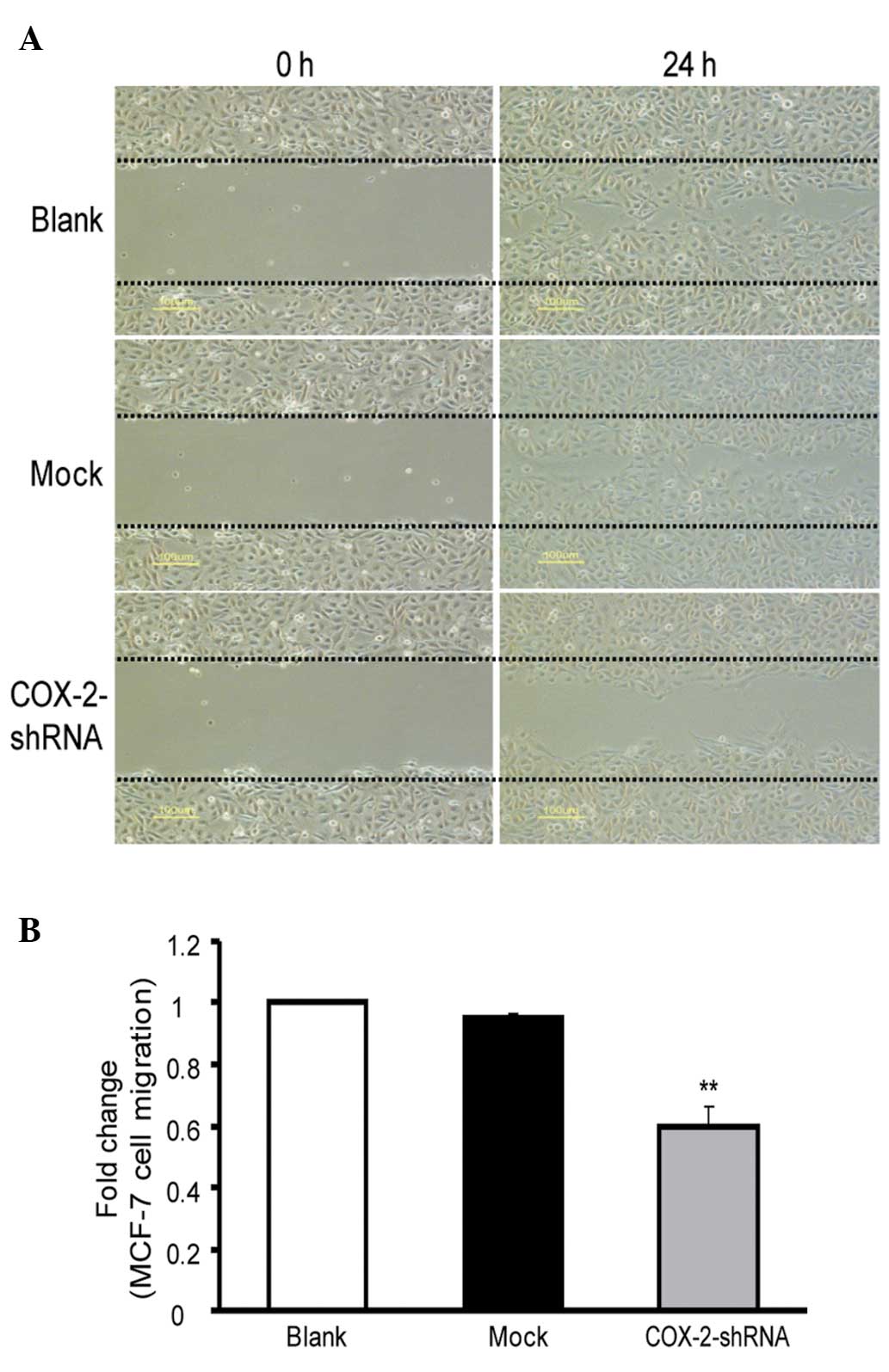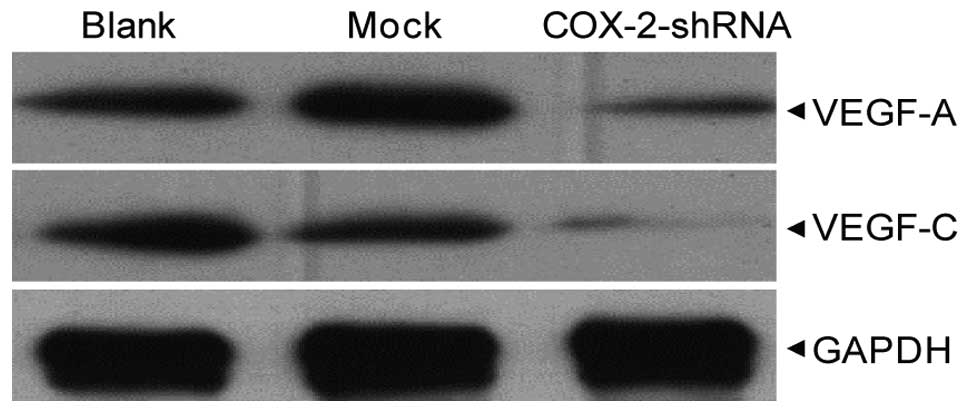|
1
|
Shehzad A, Lee J and Lee YS: Curcumin in
various cancers. Biofactors. 39:56–68. 2013.
|
|
2
|
Dhakal HP, Naume B, Synnestvedt M, et al:
Expression of cyclooxygenase-2 in invasive breast carcinomas and
its prognostic impact. Histol Histopathol. 27:1315–1325. 2012.
|
|
3
|
Ashihara E: RNA interference for cancer
therapies. Gan To Kagaku Ryoho. 37:2033–2041. 2010.(In
Japanese).
|
|
4
|
Liu JL, Wei W, Tang W, et al: Silencing of
lysyl oxidase gene expression by RNA interference suppresses
metastasis of breast cancer. Asian Pac J Cancer Prev. 13:3507–3511.
2012.
|
|
5
|
Engebraaten O, Moen Vollan HK and
Børresen-Dale AL: Triple-negative breast cancer and the need for
new therapeutic targets. Am J Pathol. 183:1064–1074. 2013.
|
|
6
|
Li N, Zheng RS, Zhang SW, et al: Analysis
and prediction of breast cancer incidence trend in China. Zhonghua
Yu Fang Yi Xue Za Zhi. 46:703–707. 2012.(In Chinese).
|
|
7
|
Sheri A and Johnston S: New developments
and future directions in systemic therapy. Clin Oncol (R Coll
Radiol). 25:117–126. 2013.
|
|
8
|
Veeck J1, Noetzel E, Bektas N, et al:
Promoter hypermethylation of the SFRP2 gene is a high-frequent
alteration and tumor-specific epigenetic marker in human breast
cancer. Mol Cancer. 7:832008.
|
|
9
|
Zhang X and Munster PN: New protein kinase
inhibitors in breast cancer: afatinib and neratinib. Expert Opin
Pharmacother. 15:1277–1288. 2014.
|
|
10
|
De Los Santos JF, Cantor A, Amos KD, et
al: Magnetic resonance imaging as a predictor of pathologic
response in patients treated with neoadjuvant systemic treatment
for operable breast cancer. Translational Breast Cancer Research
Consortium trial 017. Cancer. 119:1776–1783. 2013.
|
|
11
|
Taromaru GC, DE Oliveira VM, Silva MA, et
al: Interaction between cyclooxygenase-2 and insulin-like growth
factor in breast cancer: A new field for prevention and treatment.
Oncol Lett. 3:682–688. 2012.
|
|
12
|
Park BW, Park S, Park HS, et al:
Cyclooxygenase-2 expression in proliferative Ki-67-positive breast
cancers is associated with poor outcomes. Breast Cancer Res Treat.
133:741–751. 2012.
|
|
13
|
Huang ZF, Massey JB and Via DP:
Differential regulation of cyclooxygenase-2 (COX-2) mRNA stability
by interleukin-1 beta (IL-1 beta) and tumor necrosis factor-alpha
(TNF-alpha) in human in vitro differentiated macrophages. Biochem
Pharmacol. 59:187–194. 2000.
|
|
14
|
Howe LR, Subbaramaiah K, Brown AM and
Dannenberg AJ: Cyclooxygenase-2: a target for the prevention and
treatment of breast cancer. Endocr Relat Cancer. 8:97–114.
2001.
|
|
15
|
Singh B and Lucci A: Role of
cyclooxygenase-2 in breast cancer. J Surg Res. 108:173–179.
2002.
|
|
16
|
Oliveira VM, Piato S and Silva MA:
Correlation of cyclooxygenase-2 and aromatase immunohistochemical
expression in invasive ductal carcinoma, ductal carcinoma in situ,
and adjacent normal epithelium. Breast Cancer Res Treat.
95:235–241. 2006.
|
|
17
|
Gabbert H, Wagner R, Moll R and Gerharz
CD: Tumor dedifferentiation: an important step in tumor invasion.
Clin Exp Metastasis. 3:257–279. 1985.
|
|
18
|
Takahashi Y, Kawahara F, Noguchi M, et al:
Activation of matrix metalloproteinase-2 in human breast cancer
cells overexpressing cyclooxygenase-1 or -2. FEBS Lett.
460:145–148. 1999.
|
|
19
|
Sivula A, Talvensaari-Mattila A, Lundin J,
et al: Association of cyclooxygenase-2 and matrix
metalloproteinase-2 expression in human breast cancer. Breast
Cancer Res Treat. 89:215–220. 2005.
|
|
20
|
Bailey T, Biddlestone L, Shepherd N, et
al: Altered cadherin and catenin complexes in the Barrett’s
esophagus-dysplasia-adenocarcinoma sequence: correlation with
disease progression and dedifferentiation. Am J Pathol.
152:135–144. 1998.
|
|
21
|
Hiraga T, Myoui A, Choi ME, et al:
Stimulation of cyclooxygenase-2 expression by bone-derived
transforming growth factor-beta enhances bone metastases in breast
cancer. Cancer Res. 66:2067–2073. 2006.
|
|
22
|
Musto P: Thalidomide therapy for
myelodysplastic syndromes: current status and future perspectives.
Leuk Res. 28:325–332. 2004.
|
|
23
|
Pai R, Szabo IL, Soreghan BA, et al:
PGE(2) stimulates VEGF expression in endothelial cells via
ERK2/JNK1 signaling pathways. Biochem Biophys Res Commun.
286:923–928. 2001.
|
|
24
|
Liu XH, Kirschenbaum A, Yao S, et al:
Upregulation of vascu larendothelial growth factor by cobalt
chloride-simulated hypoxia is mediated by persistent induction of
cyclooxygenase-2 in a metastatic human prostate cancer cell line.
Clin Exp Metastasis. 17:687–694. 1999.
|
|
25
|
Uefuji K, Ichikura T and Mochizuki H:
Cyclooxygenase-2 expression is related to prostaglandin
biosynthesis and angiogenes is in gastric cancer. Clin Cancer Res.
6:135–138. 2000.
|
|
26
|
Bamba H, Ota S, Kato A, et al:
Prostaglandins up-regulate vascu larendothelial growth factor
production distict pathways in differentiated U937 cells. Biochem
Biophys Res Commun. 273:487–491. 2000.
|
|
27
|
Tsurusaki T, Kanda S, Sakai H, et al:
Vascular endothelial growth factor-C expression in human prostatic
carcinoma and its relationship to lymph node metastasis. Br J
Cancer. 80:309–313. 1999.
|
|
28
|
Su JL, Shih JY, Yen ML, et al:
Cyclooxygenase-2 induces EP1- and HER-2/Neu-dependent vascular
endothelial growth factor-C up-regulation: a novel mechanism of
lymph angiogenesis in lung adenocarcinoma. Cancer Res. 64:554–564.
2004.
|
|
29
|
Kubowicz P, Żelaszczyk D and Pękala E:
RNAi in clinical studies. Curr Med Chem. 20:1801–1816. 2013.
|
|
30
|
Ghafouri-Fard S and Ghafouri-Fard S: siRNA
and cancer immunotherapy. Immunotherapy. 4:907–917. 2012.
|
|
31
|
McCormick DL, Madigan MJ and Moon RC:
Modulation of rat mammary carcinogenesis by indomethacin. Cancer
Res. 45:1803–1808. 1985.
|
|
32
|
Harris RE, Alshafie GA, Abou-Issa H and
Seibert K: Chemoprevention of breast cancer in rats by celecoxib, a
cyclooxygenase 2 inhibitor. Cancer Res. 60:2101–2103. 2000.
|
|
33
|
Nakatsugi S, Ohta T, Kawamori T, et al:
Chemoprevention by nimesulide, a selective cyclooxygenase-2
inhibitor, of
2-amino-1-methyl-6-phenylimidazol[4,5-b]pyridine(PhIP)-induced
mammary gland carcinogenesis in rats. Jpn J Cancer Res. 91:886–892.
2000.
|
|
34
|
Harris RE, Chlebowski RT, Jackson RD, et
al: Women’s Health Initiative: Breast cancer and nonsteroidal
anti-imflammatory drugs: prospective results from the Women’s
Health Initiative. Cancer Res. 63:6096–6101. 2003.
|
|
35
|
Khuder SA and Mutgi AB: Breast cancer and
NSAIDs use: a meta-analysis. Br J Cancer. 84:1188–1192. 2001.
|
|
36
|
Jana D, Sarkar DK, Maji A, et al: Can
cyclo-oxygenase-2 be a useful prognostic and risk stratification
marker in breast cancer? J Indian Med Assoc. 110:429–433. 2012.
|















